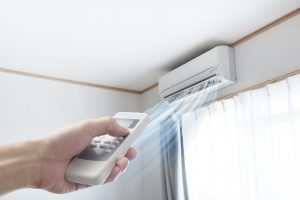 Heat pumps are vigorously created with SEER ratings in a similar fashion to air conditioners. Since they technically qualify as air conditioners as well as heaters, this shouldn’t be a surprise to anyone. The interesting part about this information, and why we decided to devote a whole blog post to it, is that these systems require a bit more efficiency calculating than an air conditioner.
Heat pumps are vigorously created with SEER ratings in a similar fashion to air conditioners. Since they technically qualify as air conditioners as well as heaters, this shouldn’t be a surprise to anyone. The interesting part about this information, and why we decided to devote a whole blog post to it, is that these systems require a bit more efficiency calculating than an air conditioner.
Thnk about it. Your heat pump works all year round moving heat from one place to another, while your air conditioner only works on the hot summer days. A heat pump that’s not up to efficiency standards proposed by the government is going to cost you a lot more than an efficient air conditioner. Take it from your Colorado Springs, CO HVAC provider, this is not something to ignore!
SEER vs. HSPF
There are two terms we’d like to talk about today. We’ve mentioned the SEER rating before, which stands for seasonal energy efficiency ratio, which can only be applied to air conditioners and their cooling power. However, there’s a new term we’d like to talk about—HSPF, which stands for heating season performance factor. This is important for heat pumps because it’s technically the SEER ratio for systems that heat your home during the winter!
Here in Colorado, we need stable heating for a good portion of the year. That means you’re going to want to pay close attention to the HSPF rating of your heat pump, ensuring you’ve got efficient heating that doesn’t cost you too much. Generally, if a heat pump has a high SEER rating, then it also has a high HSPF rating as well, but be sure to check specifically to make sure.
Minimum Standards
There are minimum SEER and HSPF ratings that are allowed by the government. This is good news because a comfort system that’s too inefficient is just a waste of energy and is extremely harmful to the environment. The minimum SEER rating for air conditioners is 13 and the minimum HSPF rating for heat pumps is 7.7. Take these numbers as good guidelines when you go out to purchase your heat pump. If a salesperson is trying to talk up a system that hovers around these standards, it’s nothing to bark about. These are the minimum legal standards after all!
Efficiency in the Winter
Heat pumps generally have a harder time keeping your home comfortable when temperatures get extremely cold. Since the unit moves heat from the outside to the inside, when temperatures get extremely cold, there’s less heat to move into your home. That’s why it’s so important to investigate the HSPF rating of a heat pump, since you’re going to want a system that can efficiently keep your home warm, even on the coldest of days. Think about sealing your windows and doors to keep heat inside, as well as investing in a heat pump that’s higher than normal in efficiency standards.
Call our team if you have any questions about heat pumps, their efficiency ratios, or if you’re interested in trying out this revolutionary new technology.
The team at Robbins Heating & Air Conditioning can take good care of you. Call us today!
